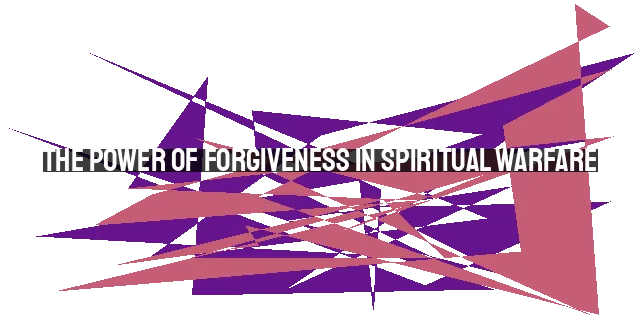The Meaning of Sheol in Scripture: Understanding God's Power over Death and the Grave.
Discovering the Meaning of Sheol in Scripture
As a Christian, you must have heard about the word "Sheol" several times in the Bible. But what does Sheol mean and what is its relevance to your Christian walk? Sheol is a Hebrew word used in the Old Testament to refer to the place of the dead, the underworld, or the grave. Understanding the meaning of Sheol can help you gain insight into the nature of God and his plan for humanity.
In this article, we will explore the meaning of Sheol in the Old Testament and how it relates to the Christian faith. We will look at the different ways Sheol is portrayed in the Bible, including its association with the devil and its connection to the Promised Land. We will also examine how God's power is demonstrated in his ability to raise people from the depths of Sheol. Finally, we will see how Jesus Christ's resurrection conquered death and the grave, bringing light to the darkness of Sheol.
Sheol in the Old Testament
The word "Sheol" appears several times in the Old Testament, with different translations including "grave," "pit," and "hell." It is used to describe the place where all people, whether righteous or wicked, go after death. Sheol is often depicted as a dark and gloomy place, devoid of joy, life, and hope. In Job 10:21-22, Job describes Sheol as a place of darkness and the shadow of death, where there is no order, and the light is as darkness.
The Old Testament portrays Sheol as a place of exile, a wilderness, and a prison. It is a place of separation from the living and the Promised Land, where God's presence and blessings are found. In Psalm 88, the Psalmist describes himself as being in Sheol, cut off from God's care and protection. In Isaiah 38:10-14, King Hezekiah laments being taken to Sheol before his time, feeling that he is being cut off from the land of the living.
Sheol is also associated with the devil and the powers of darkness. In Isaiah 14:9-20, the prophet describes Sheol as the place where the king of Babylon will go after his death. The king, who exalted himself above God, will be humbled and brought down to Sheol, where he will be mocked and rejected. In Ezekiel 31:14-18, the Pharaoh of Egypt is likened to a tree that grows tall and strong but is brought down to Sheol by God's judgment. Sheol is portrayed as a place of defeat and humiliation for those who oppose God's rule.
Sheol and God's Sovereignty
Despite its association with darkness and death, Sheol is under God's authority and control. In Psalm 139:7-12, the psalmist declares that there is nowhere he can go, even to Sheol, where God's presence is not there. God's power extends even to the depths of Sheol, where he can raise people from the dead. In 1 Samuel 2:6, Hannah praises God for his ability to raise the dead and bring them back from Sheol. In Psalm 30:3, David thanks God for rescuing him from the pit of Sheol, demonstrating God's power over death and the grave.
God's sovereignty over Sheol is also seen in the story of Jonah. After he disobeys God and is swallowed by a great fish, he cries out to God from the depths of Sheol. God hears his prayer and rescues him, demonstrating his power over death and the forces of darkness. In Jonah 2:6, Jonah describes himself as being in the depths of Sheol, yet he is confident that God will hear his prayer and deliver him from his troubles.
Sheol and Jesus Christ's Resurrection
The ultimate demonstration of God's power over Sheol is seen in the resurrection of Jesus Christ. In Acts 2:27-31, Peter quotes Psalm 16:8-11 to show that David prophesied about the resurrection of Jesus. David declares in Psalm 16 that God will not abandon his soul to Sheol or let his holy one see corruption. Peter interprets this as a reference to Jesus, who was not left in Sheol but was raised from the dead on the third day.
Jesus' resurrection conquered death and the grave, bringing life and hope to those who believe in him. In 1 Corinthians 15:55-57, Paul declares that death has been swallowed up in victory through Jesus Christ. He thanks God for giving us the victory over sin and death through Jesus' resurrection. In Colossians 2:13-15, Paul describes how Jesus, through his death and resurrection, disarmed the powers of darkness and triumphed over them, making a public display of them on the cross.
Conclusion
Sheol is a complex and mysterious concept in the Old Testament, but it points to God's power and sovereignty over death and the grave. Sheol is a place of darkness and separation from God, but it is also under his authority and control. The Old Testament saints testified to God's ability to raise people from the depths of Sheol, demonstrating his power over death and the forces of darkness.
Ultimately, Jesus Christ's resurrection conquered death and the grave, bringing life and hope to those who believe in him. Through his death and resurrection, Jesus disarmed the powers of darkness and triumphed over them, making a public display of them on the cross. As a Christian, you can take comfort in the fact that God has power over Sheol, and you can have hope in the resurrection of Jesus Christ.
References:
- Job 10:21-22
- Psalm 88
- Isaiah 14:9-20
- Ezekiel 31:14-18
- Psalm 139:7-12
- 1 Samuel 2:6
- Psalm 30:3
- Jonah 2:6
- Acts 2:27-31
- 1 Corinthians 15:55-57
- Colossians 2:13-15



POST COMMENT
For post a new comment. You need to login first. Login
COMMENTS(0)
No Comment yet. Be the first :)